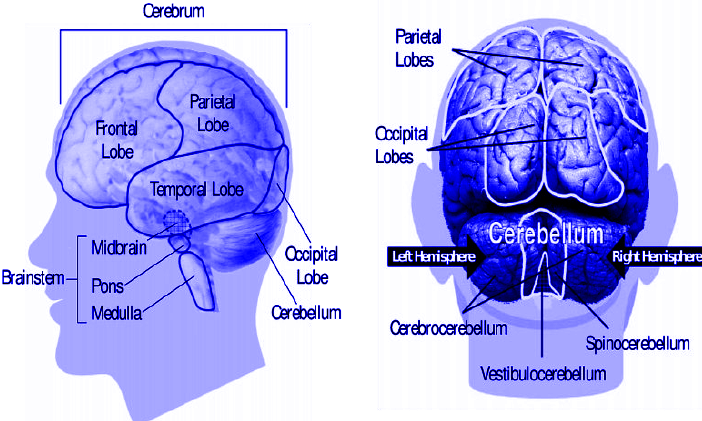Optimal Brain Health and Cognitive Function Measures
Learn about important measures for optimal brain health and cognitive function, including physical exercise, mental stimulation, healthy diet, social interaction, and more. Improve your brain health today!
Divine & Genuine.
9/9/20244 min read


Maintaining optimal brain health and cognitive function is crucial for overall well-being and longevity. Below are some proven measures that can benefit your brain:
1) Regular Physical Exercise
Physical activity boosts blood circulation to the brain, encouraging the development of fresh neurons and improving brain flexibility. It also diminishes inflammation and triggers the secretion of brain-derived neurotrophic factor (BDNF), which sustains the health of neurons. Participate in aerobic activities such as walking, jogging, or swimming (about 150 minutes weekly). Additionally, strength training and stretching exercises are advantageous.
2) Adequate Sleep
Sleep is crucial for memory consolidation, clearing toxins from the brain, and regulating mood. Poor sleep is associated with cognitive decline and various mental health issues. Get 7-9 hours of quality sleep each night by establishing a regular sleep schedule, creating a restful environment, and avoiding screens before bed.
3) Healthy Diet
A diet rich in antioxidants, healthy fats, vitamins, and minerals supports brain function and protects against cognitive decline. Nutrients such as omega-3 fatty acids are especially beneficial for brain health. Consider adopting a Mediterranean-style diet consisting of ample servings of fruits, vegetables, whole grains, fish, and olive oil. It's important to reduce intake of processed foods, sugars, and saturated fats.
4) Mental Stimulation
Stimulating your mind with fresh activities helps to reinforce neural connections and build cognitive reserve, potentially delaying the start of cognitive decline. Participating in pastimes such as reading, solving puzzles, acquiring a new language, or playing a musical instrument is beneficial. It's essential to introduce your brain regularly to new challenges.
5) Social Interaction
Engaging with others can help reduce the risk of cognitive decline and support emotional well-being. Interacting with other people stimulates brain regions involved in memory, language, and decision-making. To promote brain health, maintain relationships with friends and family, join clubs or social groups, and engage in regular conversations and group activities.
6) Stress Management
Chronic stress can cause damage to the structure and function of the brain, particularly in areas associated with memory and learning. It is crucial to handle stress to avoid these negative consequences. Techniques such as mindfulness, meditation, deep breathing exercises, and yoga can be helpful. Additionally, participating regularly in relaxing activities and stress management practices is essential.
7) Stay Hydrated
Dehydration can impair cognitive function, affecting concentration, memory, and mood. Adequate water intake supports overall brain function. Drink at least 2 liters of water daily, more if you're physically active or in a hot climate. Monitor your hydration by checking the color of your urine—light yellow is ideal.
8) Limit Alcohol and Avoid Smoking
Excessive alcohol and smoking can harm brain cells, decrease cognitive function, and raise the risk of dementia. Both habits have adverse effects on brain structure and function. Limit alcohol consumption to moderate levels (1 drink per day for women, 2 for men) and refrain from smoking entirely. If quitting smoking or cutting back on alcohol is difficult, seek help.
9) Maintain a Healthy Weight
Obesity is associated with cognitive decline and an increased risk of dementia. Excess body fat can lead to inflammation and insulin resistance, which can cause adverse effects on brain function. To maintain a healthy weight, follow a balanced diet and participate in physical activity regularly. Monitor your weight and make lifestyle changes if necessary.
10) Protect Your Head
Head injuries can cause long-term cognitive issues, including an increased risk of dementia. Protecting your head can reduce the risk of trauma that could impact brain health. Wear helmets when cycling, skiing, or participating in high-risk activities. Use seat belts and take precautions to prevent falls, especially in older adults.
11) Limit Exposure to Toxins
Environmental toxins, like heavy metals and pesticides, can harm the brain. Limiting exposure can help safeguard brain health. Opt for organic foods when you can, steer clear of harmful chemicals, and ensure your home and workplace have proper ventilation.
12) Manage Chronic Health Conditions
Conditions such as hypertension, diabetes, and high cholesterol can hurt brain health, increasing the risk of stroke and cognitive decline. It is advisable to regularly monitor your health, take prescribed medications, and follow a healthy lifestyle to manage these conditions.
13) Meditation and Mindfulness
Regular meditation and mindfulness practice can enhance brain function, improve focus, reduce stress, and increase grey matter density in areas related to memory and learning. Begin with a few minutes of mindfulness or meditation each day and gradually increase the time. You can use apps and guided sessions to get started.
14) Maintain a Strong Sense of Purpose
A sense of purpose is associated with better mental health and a lower risk of cognitive decline. Purposeful activities provide motivation and cognitive engagement. Set meaningful goals, volunteer, or pursue activities that give you a sense of accomplishment and satisfaction.
15) Practice Gratitude and Positive Thinking
Positive thinking and gratitude improve mental health by reducing stress, promoting emotional well-being, and supporting brain health. Keeping a gratitude journal, regularly reflecting on positive experiences, and practicing reframing negative thoughts into positive ones can help.
16) Exposure to Nature
Spending time outdoors decreases stress, boosts mood, and improves cognitive abilities. Connecting with nature is associated with reduced levels of anxiety and depression. Try to dedicate 120 minutes per week to outdoor activities such as walking in parks, hiking, or relaxing in a garden.
17) Regular Health Checkups
Regular monitoring and timely intervention can help prevent or slow down cognitive decline. It is crucial to identify and address any potential risk factors promptly. Make sure to see your healthcare provider regularly for checkups, including blood pressure, cholesterol, and blood sugar tests, and stay current with the screenings recommended for you.
NOTE: These strategies collectively contribute to optimal brain health by promoting neurogenesis, enhancing cognitive reserve, reducing inflammation, and protecting against neurodegenerative diseases. Adopting many of these habits into your daily routine will help maintain and improve your brain health and cognitive function.
DON’T FORGET TO SUBSCRIBE AND SHARE.
DISCLAIMER: Please be advised that the information provided here is for informational purposes only. It is not intended to be taken as medical advice or consultation. It is imperative that you consult your physician for any medical advice.
Quality
Providing top-notch health and wellness products and services.
Satisfaction
Gold
info@divineandgenuine.com
© 2024. All rights reserved.
